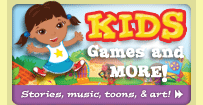| |
ABCs of Change For Latino Children
Source: WashingtonPost.com
By Maria Glod Washington Post Staff Writer
Saturday, March 24, 2007; Page B01
Advocates Push Early Education Programs To Help Community Bridge Achievement Gap
The children and parents gathered for story time one recent Saturday morning in the District heard "The Very Hungry Caterpillar" not once but twice. "In the light of the moon a little egg lay on a leaf," the Eric Carle classic began in the first rendition.
"Bajo la luz de la luna, encima de una hoja, habia un huevecillo," it began in the second.
Afterward, children drew caterpillars and butterflies and ate cupcakes. Everyone left with a copy of the book. Among the crowd at the CentroNia family support center were Angie Lemus, 5, and her mother, Sandra Gomez, 19.
"When I was little, no one read books to me," said Gomez, a daughter of Salvadoran immigrants. "My mother didn't have any kind of education at all, so it was hard for her to read a book even in Spanish." But Gomez has a different routine with Angie. "Every night we read a book," she said. "Now it's normal."
That is exactly the kind of shift at home that educators seek to address a major academic challenge: Latino children nationwide tend to start kindergarten knowing less about letters and numbers compared with their non-Hispanic white peers. Many never catch up. Improving early childhood education is one of the best ways to narrow the achievement gap, educators say, citing such programs as the family book club. But many Latino families face economic, linguistic, educational and even cultural barriers.
"It's partly about parents not understanding the American system," said Eugene E. Garcia, an Arizona State University administrator and chairman of the National Task Force on Early Childhood Education for Hispanics. "Hispanic parents think school is good and education is good. They just don't have the tools they need."
About 40 percent of Latino 3- and 4-year-olds (and 5-year-olds not yet in kindergarten) are enrolled in pre-kindergarten programs, compared with about 60 percent of white and African American children, according to the District-based advocacy group Pre-K Now. In addition, a new report from Garcia's task force noted that Hispanic mothers generally read and talk less to their children compared with white parents. Hispanic families also tend to have fewer children's books at home.
Latino education advocates said they are battling a misperception that Hispanic parents are less concerned about teaching young children. Research shows lack of interest isn't the problem. Often Hispanic families don't have affordable preschools in their communities or, because of language barriers, don't know what's available. Many don't know the benefits of telling stories to young children or reading or counting with them. To many recent immigrants and their families, experts say, the U.S. culture of Baby Einstein tapes, museum trips and library story times is unfamiliar.
|
|





